Palmetto Bluff Real Estate Company Sales Office
Office Hours
Monday-Friday 9am - 5pm
Saturday 9am - 4pm
Sunday 12 - 4pm
Saturday 9am - 4pm
Sunday 12 - 4pm
On January 9, 1918, FBI Agent William V. O’Brien arrived in Bluffton, on the trail of a possible enemy operative working for the Austro-Hungarian Empire. O’Brien quickly sought out the local informants who had tipped off the authorities. A member of Beaufort County’s Food Conservation Committee had reported the suspicious behavior, but that official had simply relayed details provided by Miss Ruth Padgett, the schoolteacher at Palmetto Bluff. Miss Padgett taught the children of the employees of Richard T. Wilson Jr., the owner of the 20,000-acre property.
Although some Bluffton residents worked for the Wilsons, many of the household staff were from Europe. Irish, English, Danish, Scottish, and Norwegian servants were among those who attended the family at their home in New York and accompanied them when they traveled south to their winter residence at Palmetto Bluff. In 1917, Mr. and Mrs. Kover from Hungary were among the Wilsons’ employees.
At the time, the United States was embroiled in World War I, fighting against Germany and the Austro-Hungarian Empire. As American troops battled abroad, those at home rallied to the war effort. A request by the new federal agency the US Food Administration for everyone to conserve food was embraced as not only a way to contribute to the cause but also a patriotic duty. Across the country, families pledged to reduce their use of sugar, wheat, and meat so those supplies could be sent to the troops and European allies. “Victory gardens” sprouted in backyards and public spaces, as communities turned to local production to save food and fuel for the soldiers.
While the conservation of food was voluntary, there was enormous social pressure to participate in the effort. The US Food Administration’s campaign “Food Will Win the War” blanketed the country in posters, advertisements, and newspaper articles on Americans’ duty to conserve food. Schoolteachers sent home pledge cards for parents to sign that affirmed their family’s commitment to “Meatless Mondays, Wheatless Wednesdays, and Porkless Saturdays.” And this is what led to Miss Ruth Padgett’s suspicions of an enemy agent at Palmetto Bluff.
During the last week of October 1917, Miss Padgett issued food conservation pledge cards to her students at Palmetto Bluff. The children dutifully took the cards home for their mothers to sign. Over the next few days, the signed pledges came back—all except the card from the Kover family. The Kovers’ card was returned unsigned.
While an unsigned card might have raised eyebrows, not everyone participated in the pledge card program. In a few parts of the country, officials bragged that 100 percent of the pledge cards were signed. In other places, the percentage was much lower. The Charleston Evening Post reported in January 1918 that 100,000 families in South Carolina had signed the pledge and that the goal was 300,000. So, if young Steven Kover had stayed silent when he returned an unsigned card to his teacher, it might have resulted in only a disapproving look from Miss Padgett. Perhaps it was fear of his teacher’s displeasure that prompted Steven to offer an explanation. He said his mother “would not sign the card because her sympathies were with her own country and she would not do anything she thought would harm her own country.” One can only imagine Miss Padgett’s shock at hearing this bit of information—and it wasn’t information she thought she should keep to herself.
Miss Padgett reported the Kovers’ refusal to sign the pledge to the Food Conservation Committee in Bluffton. Over the next few weeks, this tidbit of intelligence worked its way up various ladders of authority until it landed on the desk of Lewis J. Baley, head of the Georgia branch of the Federal Bureau of Investigation. Baley referred the case to the South Carolina branch in Charleston, since any action the bureau took would need the approval of the federal attorneys in South Carolina. The Charleston office dispatched Agent O’Brien to investigate.
After spending the night in Bluffton, Agent O’Brien arrived at Palmetto Bluff by boat on the morning of January 10. He was taken to see Charles Newton, the manager of the Palmetto Bluff estate. Newton confirmed that the Kovers had been employed by Wilson in May 1917 and that they had worked for Wilson until December 28, when they had been let go. Newton could not give specific details but said he believed the Kovers’ sympathies were with the Central powers. Still, he had to admit he had never heard the Kovers make a disloyal statement.
O’Brien interviewed other employees of the Wilsons. No one had ever heard the Kovers make any kind of comment that could be construed as suspicious. Miss Padgett confirmed this, saying the only thing she had heard was what Steven Kover had told her about the pledge card. Still, as the Kovers were from the Austro-Hungarian Empire, O’Brien decided to track them down.
The captain of the steamship Attaquin said the Kovers were passengers who had been on board when the ship left Palmetto Bluff on January 1. He reported that later that day, the Kovers had disembarked in Savannah. Despite the Kovers’ nine-day lead, O’Brien set off for Savannah. He soon established that the Kovers’ luggage had been taken to the Ocean Steamship Company. That company’s ticket agent turned over the passenger records for O’Brien’s perusal. O’Brien had missed them by just 36 hours.
The Kovers had left for New York City on a steamship at 5:00 a.m. on January 9, and O’Brien had arrived in Savannah on the afternoon of the 10th. Perhaps disappointed at the escape of his suspects, he returned home to Charleston the following morning.
Today, it seems absurd to think that the Kovers were enemy agents, and even if they were, that they could have inflicted damage to the United States through their employment by the Wilsons. Yet paranoia often accompanies patriotism, as it did at that time. Even in Beaufort County, a place far removed from the front lines and war rooms of World War I, people were arrested for statements that were considered anti-American. As for the Kovers, there are no records that indicate further pursuit by the FBI after they left Savannah. They may well have remained completely unaware that they had caused a stir in Bluffton and Palmetto Bluff and that they had eluded the FBI.
Read the original story in the Fall / Winter edition of The Bluff magazine.
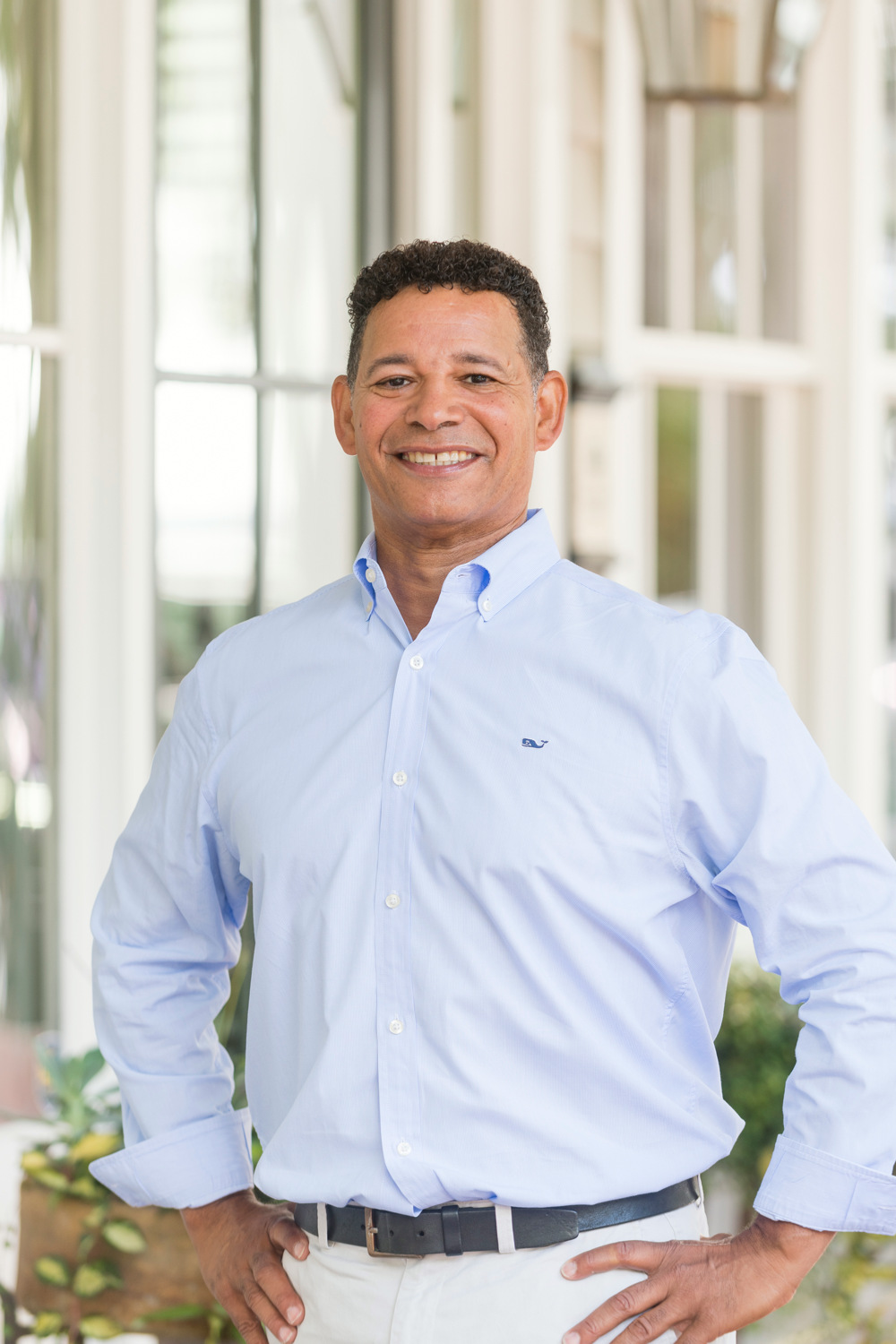
Martin’s Journey to Palmetto Bluff Real Estate Situated in the heart of Bluffton, South Carolina, Palmetto Bluff is more than just a community—it's a place of magic and wonder. For Martin Roache, a dedicated sales agent with the Palmetto Bluff Real Estate Com...
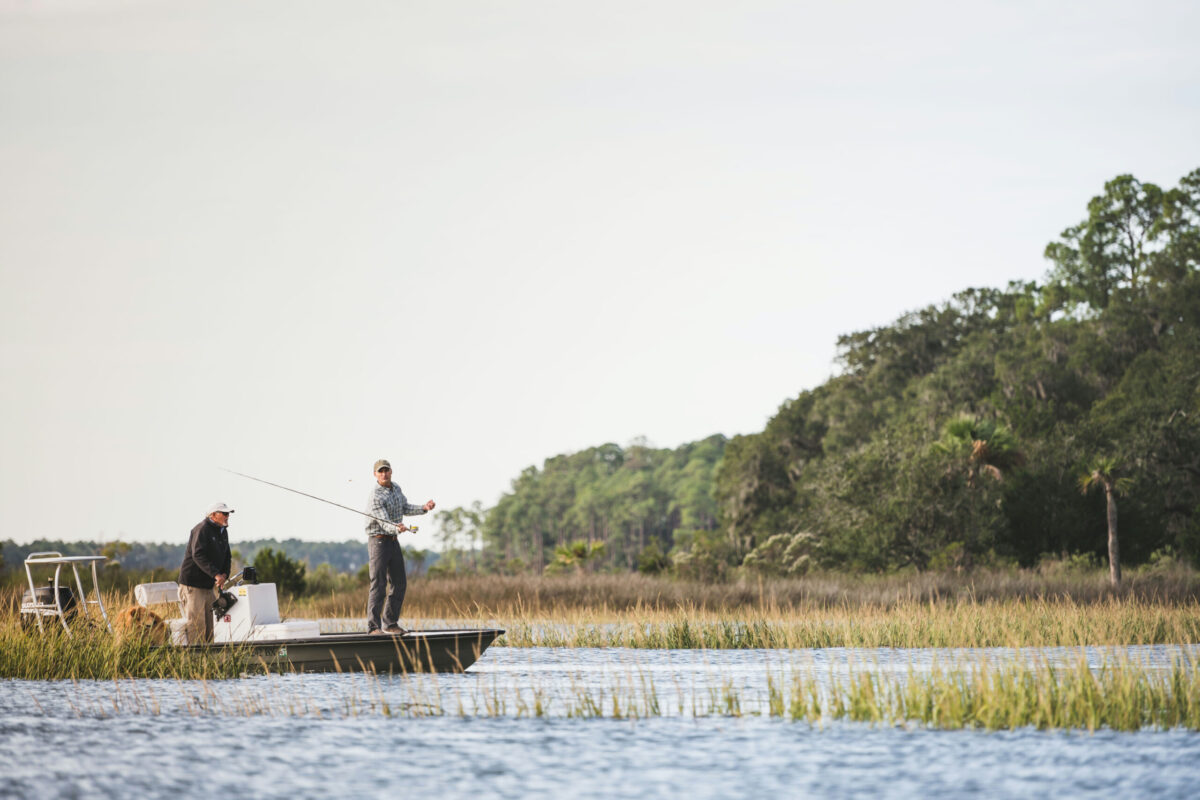
Fishing in the Lowcountry is a beloved pastime year-round, but fall and winter bring a unique charm to the waters of South Carolina. With cooler temperatures, serene surroundings, and the promise of a great catch, the autumn and winter months offer some of the...

Tis’ the season for wrapping, and we have plenty of gifts to share from 2024! This year was filled with exciting new beginnings and continued growth at Palmetto Bluff. From two new golf courses to awards for both Montage Palmetto Bluff and FLOW...

Photos courtesy of Leah Bailey DesignPhoto credit: Kelli Boyd PhotographyAs the holiday season descends upon the Lowcountry, Palmetto Bluff becomes a festive haven, where classic Southern architecture meets personal style. Whether you prefer timeless elegance ...
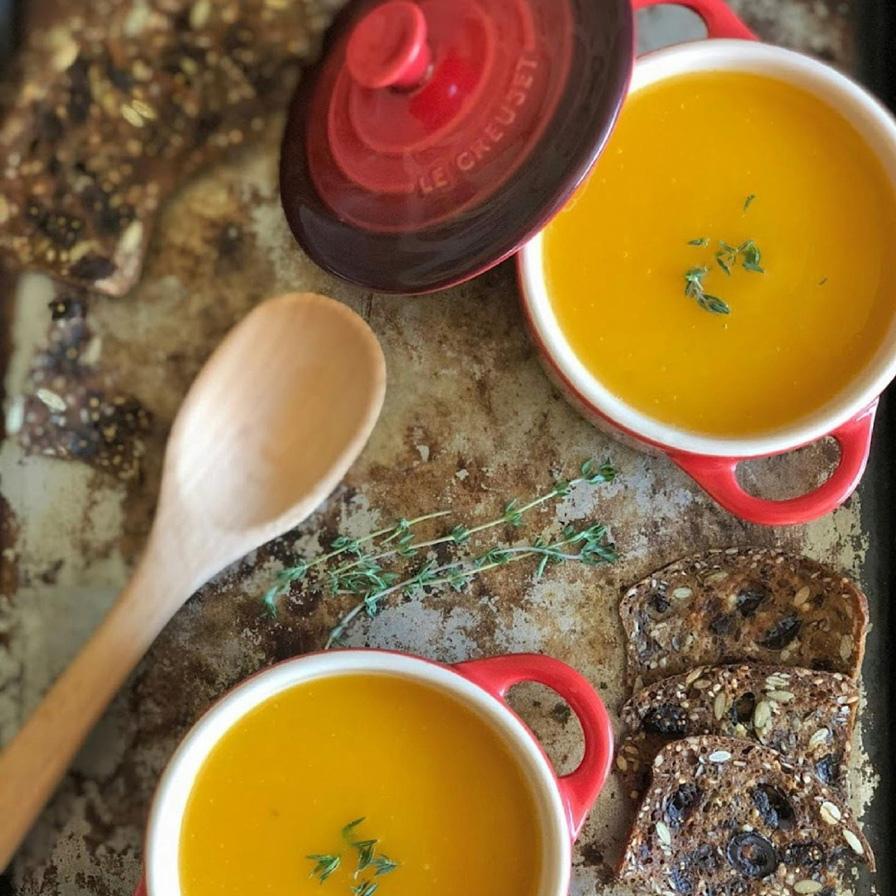
Executive Chef Beth Cosgrove and Registered Dietician Lindsay Ford recently led a Healthy Cooking Demonstration for residents interested in cooking healthy, delicious food to promote wellness. Attendees left with new recipes and flavors to try at home. The But...
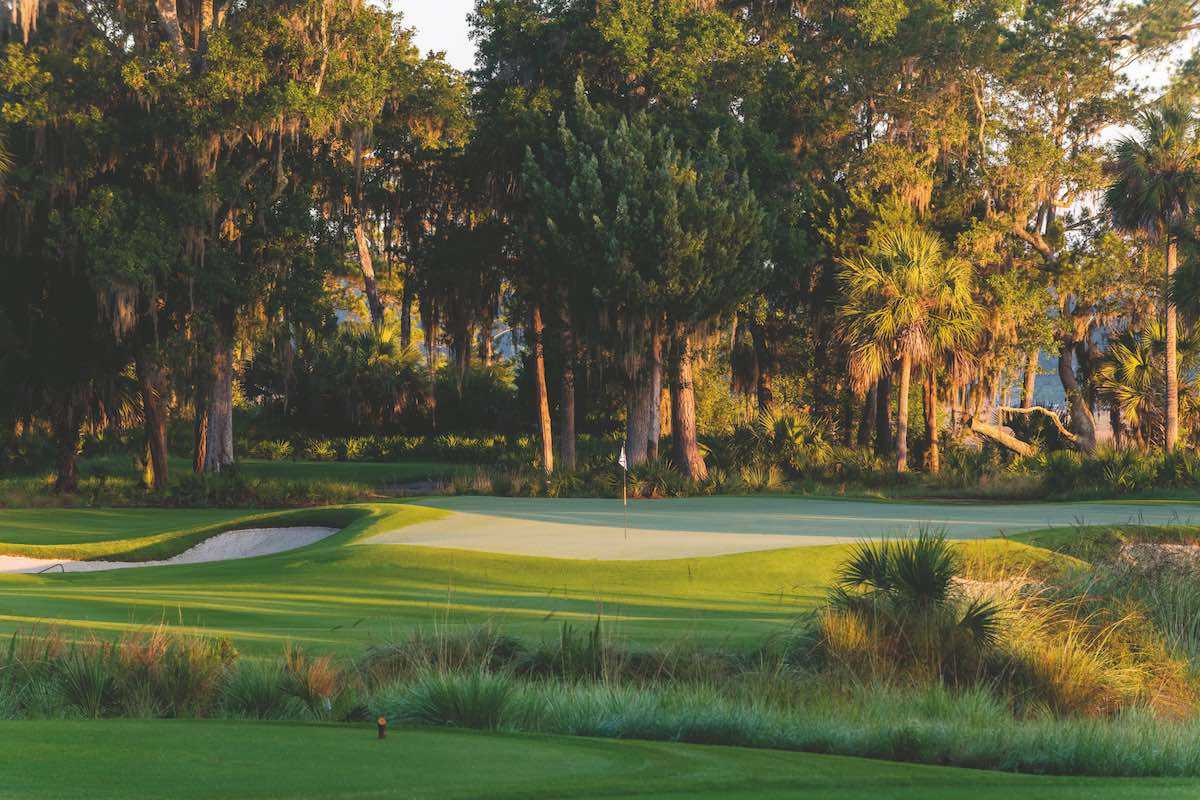
Ways to Enhance Your Winter Golf Game Winter is quickly approaching, which means peak golf season is coming to an end. Although this is a slow time for golf, it doesn’t mean you can’t play or even enhance your game during this season. To keep your game in top...

Photographs by Anne CaufmannStory by Barry Kaufman The story of this house begins with another.Mike and Melissa Pereyo first visited Palmetto Bluff in 2010 to visit longtime friends Butch and Debbie Floyd. The Floyds built their home here when the fringes of t...
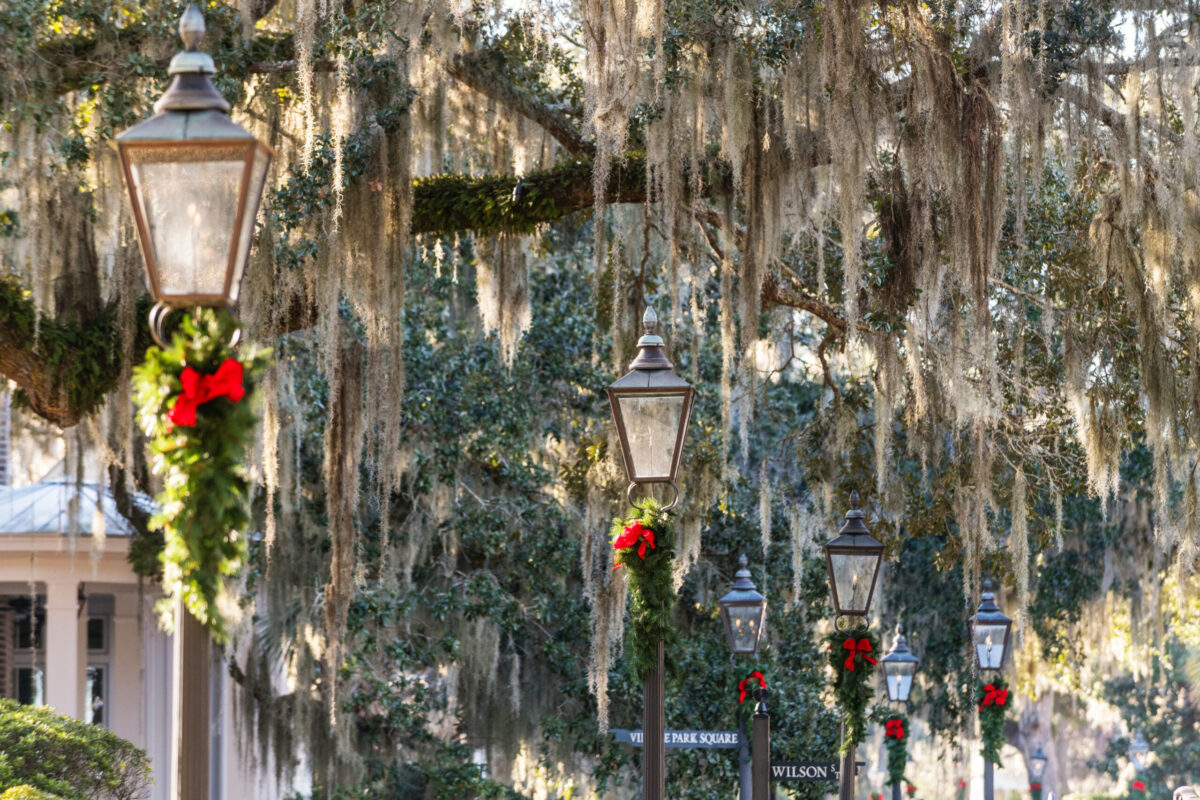
How to Spend a Lowcountry Christmas at Palmetto Bluff There's no better way to start anticipating the holidays than by making plans to spend time with family and friends. Now that the holiday season has arrived, many look forward to embracing the Christmas sp...
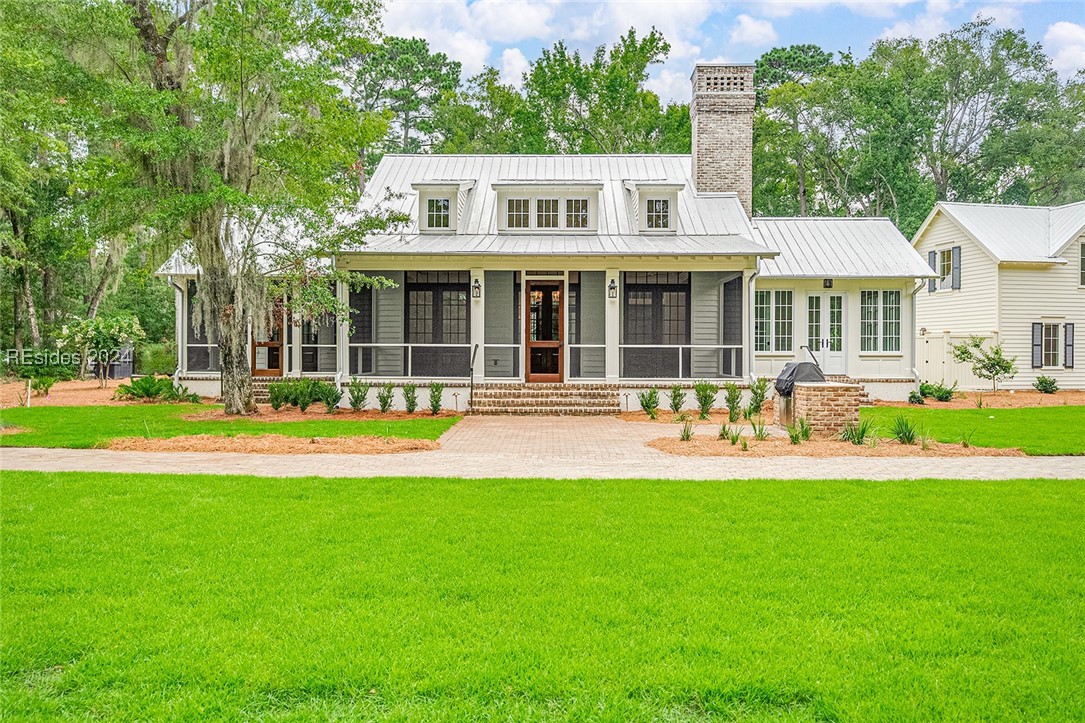
Explore 130 August Lane at Montage Residences Nestled in the heart of the Lowcountry, the Montage Residences at Palmetto Bluff offer an unparalleled blend of elegance, exclusivity, and Southern charm. This private collection of homes sits amidst the lush land...
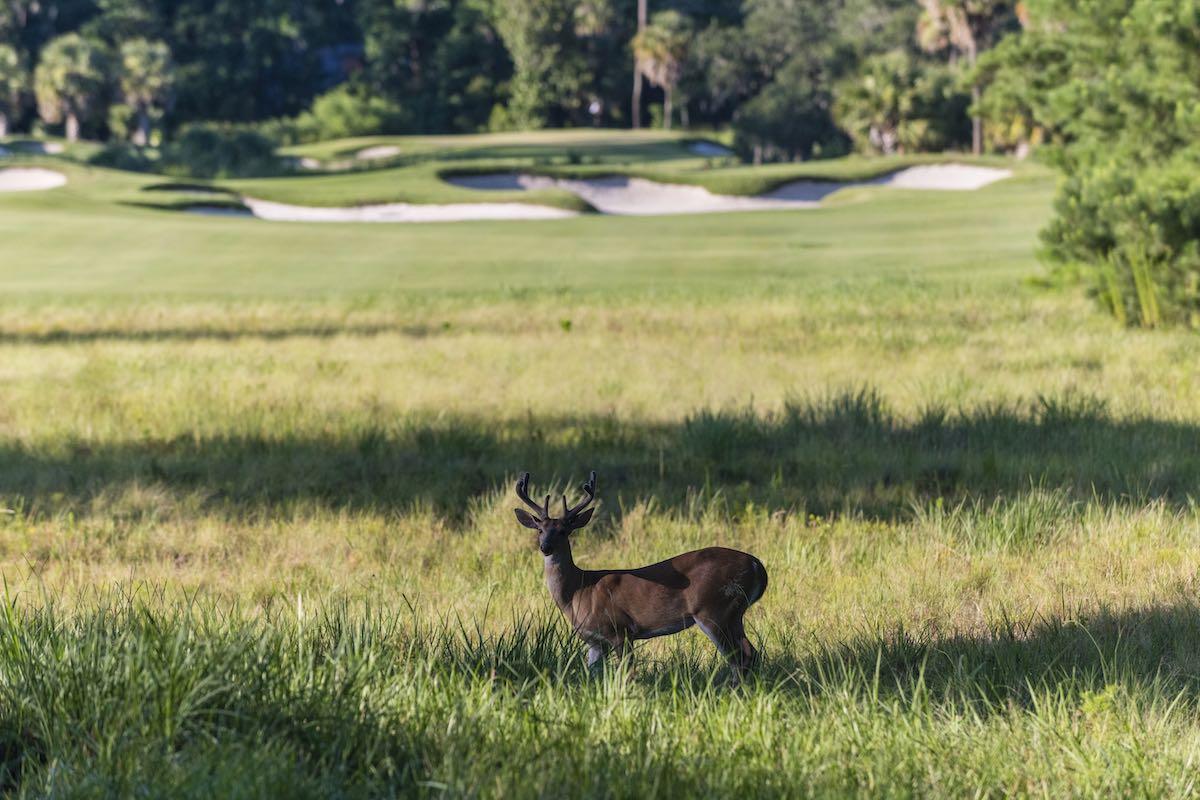
Experience Winter Wildlife This Season at Palmetto Bluff The Lowcountry is a wondrous place to live, not only for its breathtaking scenery and historical significance but also for the wildlife that inhabits it. Winter wildlife in South Carolina includes a wid...
Learn about the Palmetto Bluff Conservancy and how we keep the vision of our land in place.
On land or water, there is an ever-evolving variety of activities.
We do not attempt to independently verify the currency, completeness, accuracy or authenticity of the data contained herein. All area measurements and calculations are approximate and should be independently verified. Data may be subject to transcription and transmission errors. Accordingly, the data is provided on an “as is” “as available” basis only and may not reflect all real estate activity in the market”. © [2023] REsides, Inc. All rights reserved. Certain information contained herein is derived from information, which is the licensed property of, and copyrighted by, REsides, Inc.